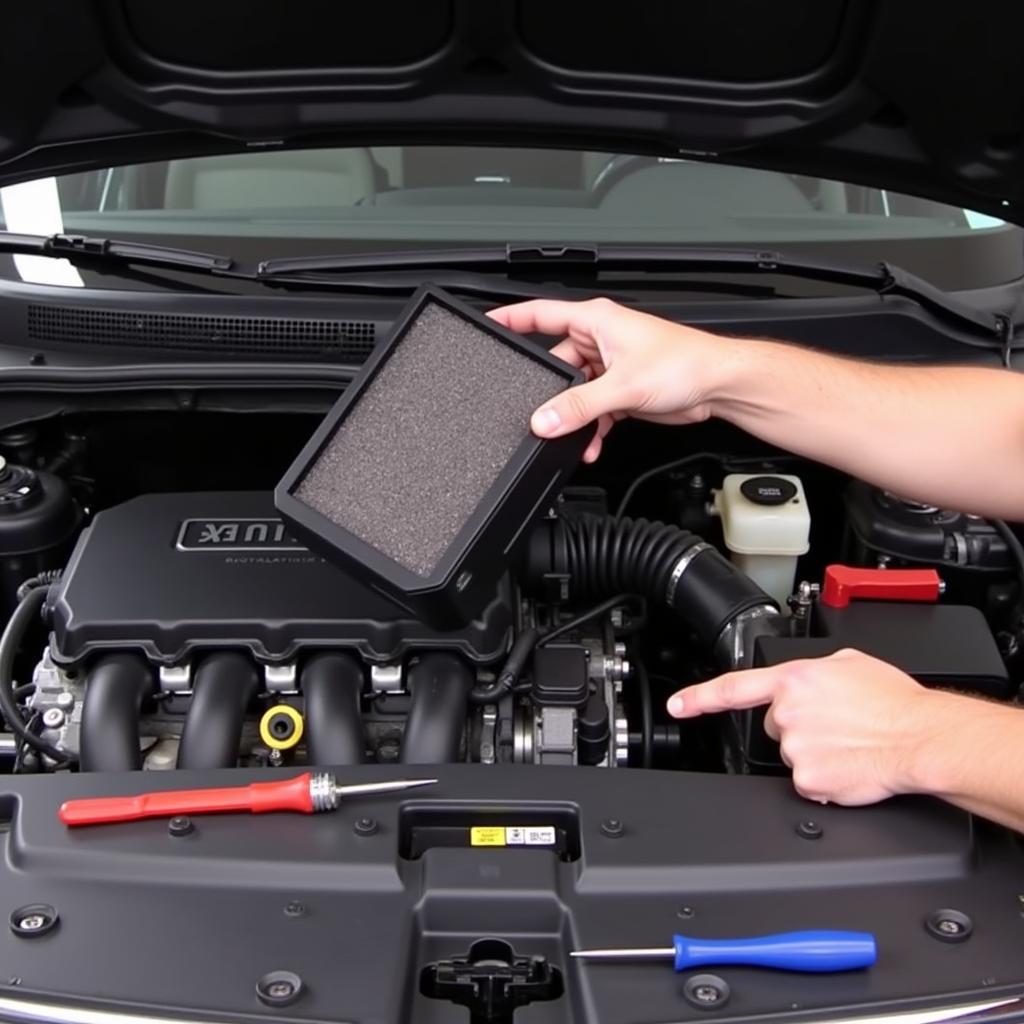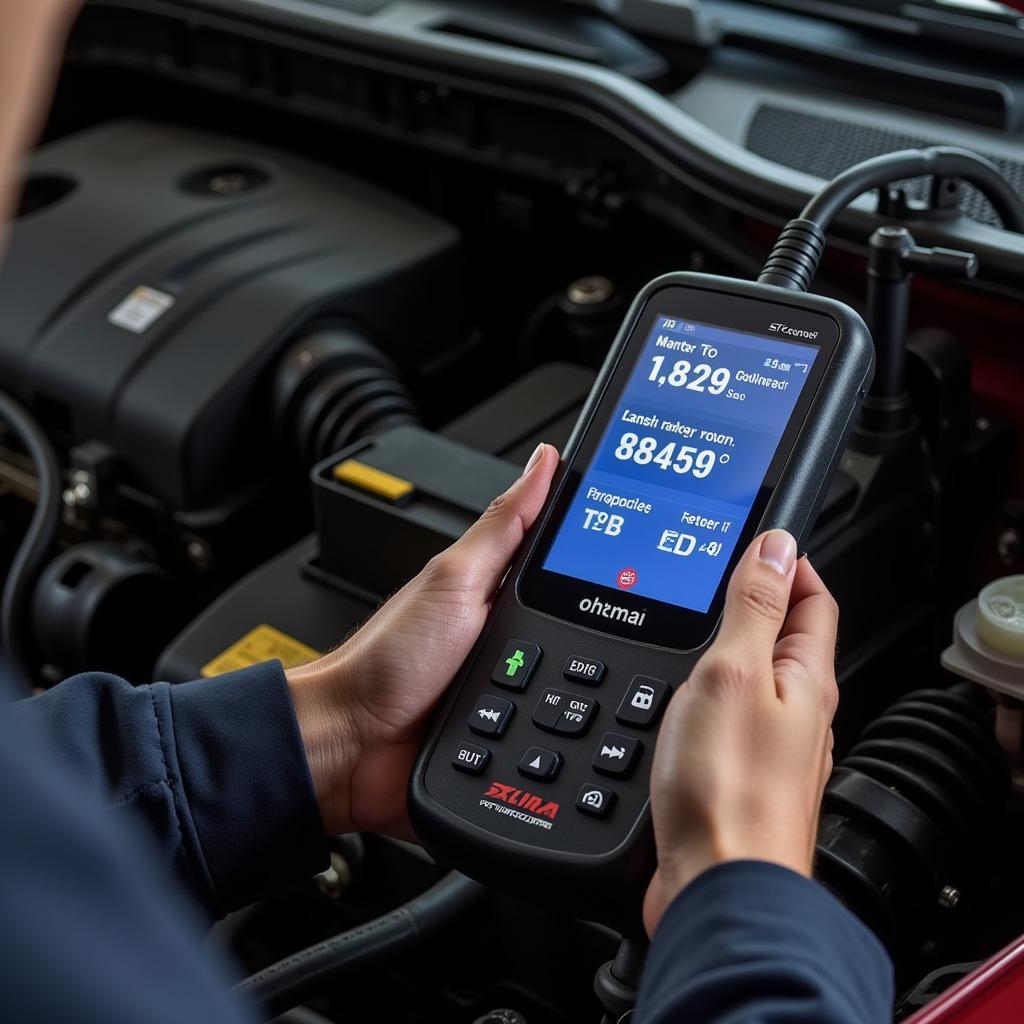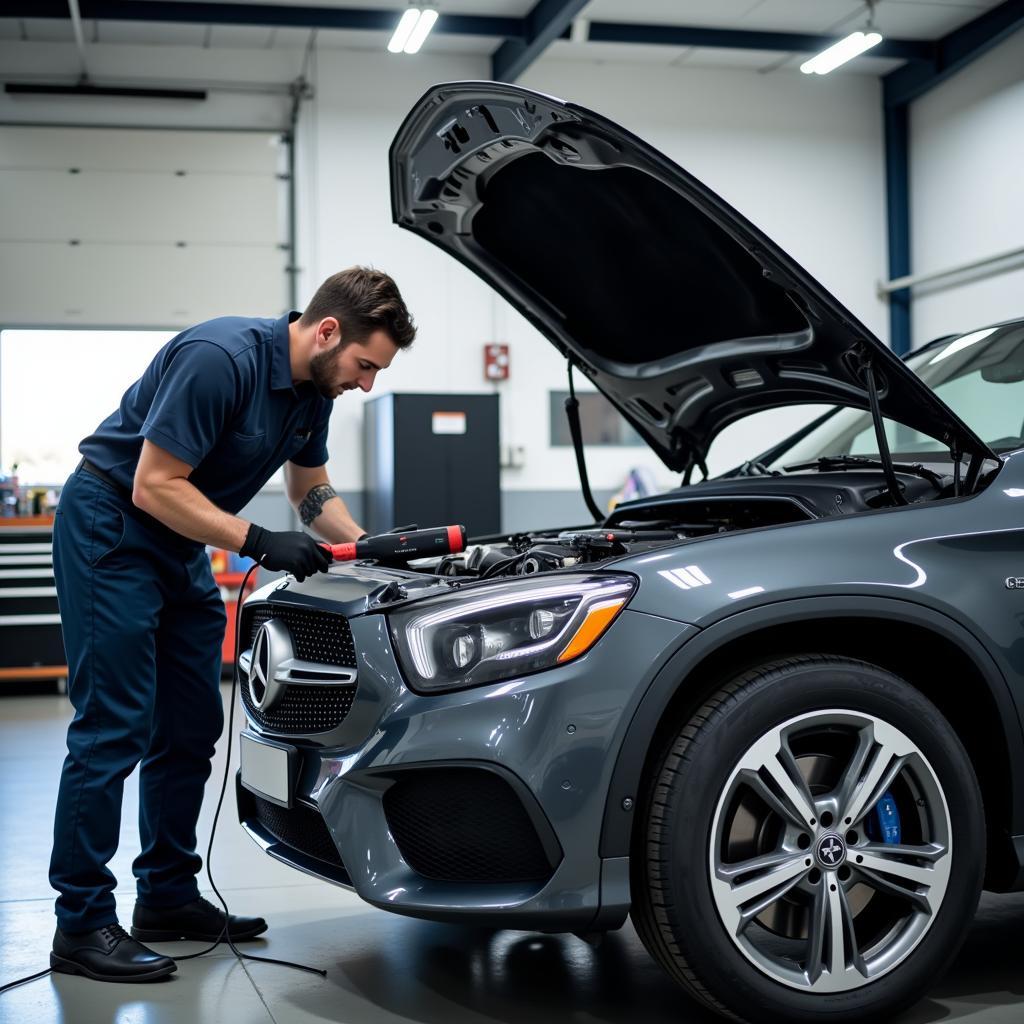Car Gets Slower After Service: Why and What to Do
Your car feels sluggish after a service? It’s a frustrating experience, especially when you expect improved performance. This article explores the potential reasons why your Car Gets Slower After Service and provides solutions to get it back to running smoothly.
Common Reasons Your Car Gets Slower After Service
Several factors can contribute to decreased car performance after a service. Let’s delve into the most common culprits:
- Incorrectly installed parts: A simple mistake during installation, such as a loose hose or improperly fitted air filter, can significantly impact engine performance.
- Low-quality parts: Using subpar replacement parts can lead to reduced efficiency and power. Always opt for high-quality, OEM or equivalent parts.
- Fluid levels: Incorrect fluid levels, whether too high or too low, can affect various systems like the transmission and brakes, leading to sluggishness.
- Computer glitches: Modern cars rely heavily on computer systems. A software update or reset during the service can sometimes introduce glitches that negatively affect performance.
- Overlooked underlying issues: The service might have addressed the immediate issues, but underlying problems may remain, contributing to the perceived slowness.
 Car Engine with Incorrectly Installed Parts
Car Engine with Incorrectly Installed Parts
Diagnosing the Problem: Why is My Car Slower After Service?
Pinpointing the exact cause requires a systematic approach:
- Check the service records: Review the work performed during the recent service. This can offer clues about potential areas to investigate.
- Inspect fluid levels: Ensure all vital fluids, including engine oil, coolant, brake fluid, and transmission fluid, are at the correct levels.
- Listen for unusual sounds: Pay attention to any new noises like knocking, grinding, or hissing, which could indicate a mechanical problem.
- Monitor the dashboard: Watch for warning lights or error messages that could provide further insights.
- Consult a qualified mechanic: If you can’t identify the cause, a professional mechanic can diagnose the issue with specialized diagnostic tools.
 Mechanic Checking Car Computer Diagnostics
Mechanic Checking Car Computer Diagnostics
Rectifying the Slowness: Getting Your Car Back in Shape
Once the cause is identified, you can take appropriate action:
- Return to the service center: If the problem is directly related to the recent service, contact the service center to rectify the issue. A reputable center should stand by their work.
- Replace faulty parts: If low-quality or incorrectly installed parts are the culprit, replace them with high-quality components.
- Adjust fluid levels: Top up or drain fluids as necessary to reach the recommended levels.
- Address software issues: If a computer glitch is suspected, a software update or reset might be necessary. Consult a qualified technician.
- Repair underlying issues: Address any underlying mechanical problems that contribute to the slowness.
Expert Insights on Car Performance Issues
“Often, a seemingly simple service can uncover hidden problems,” says John Smith, Automotive Engineer at Performance Auto Solutions. “A thorough diagnosis is crucial to ensure all underlying issues are addressed, not just the immediate concerns.”
Preventing Future Slowdowns: Proactive Car Maintenance
Regular maintenance is key to preventing performance issues:
- Follow the manufacturer’s recommended service schedule: Adhering to the recommended intervals for oil changes, tune-ups, and other services helps keep your car running smoothly.
- Use quality parts and fluids: Investing in quality components and fluids ensures optimal performance and longevity.
- Address issues promptly: Don’t ignore warning signs or unusual sounds. Addressing problems early can prevent them from escalating into more significant issues.
Conclusion: Don’t Settle for a Sluggish Ride
A car getting slower after service is a solvable problem. By understanding the potential causes and taking proactive steps, you can restore your car’s performance and enjoy a smooth and efficient ride. If you’re experiencing this issue, don’t hesitate to investigate the cause and take action.
FAQ
- Why does my car feel sluggish after an oil change? Incorrect oil viscosity or overfilling can cause sluggishness.
- Can new spark plugs make my car slower? Incorrectly gapped or faulty spark plugs can negatively impact performance.
- Could a dirty air filter cause my car to be slow? Yes, a clogged air filter restricts airflow to the engine, reducing power.
- How can I check my transmission fluid level? Refer to your owner’s manual for specific instructions as the procedure varies by car model.
- Is it normal for a car to feel different after a major service? Minor adjustments may be necessary as your car adapts to the new parts and fluids. However, significant slowness is not normal.
Need help with your car? Contact us via WhatsApp: +1(641)206-8880, Email: [email protected] or visit us at 456 Oak Avenue, Miami, FL 33101, USA. Our 24/7 customer service team is ready to assist you.

